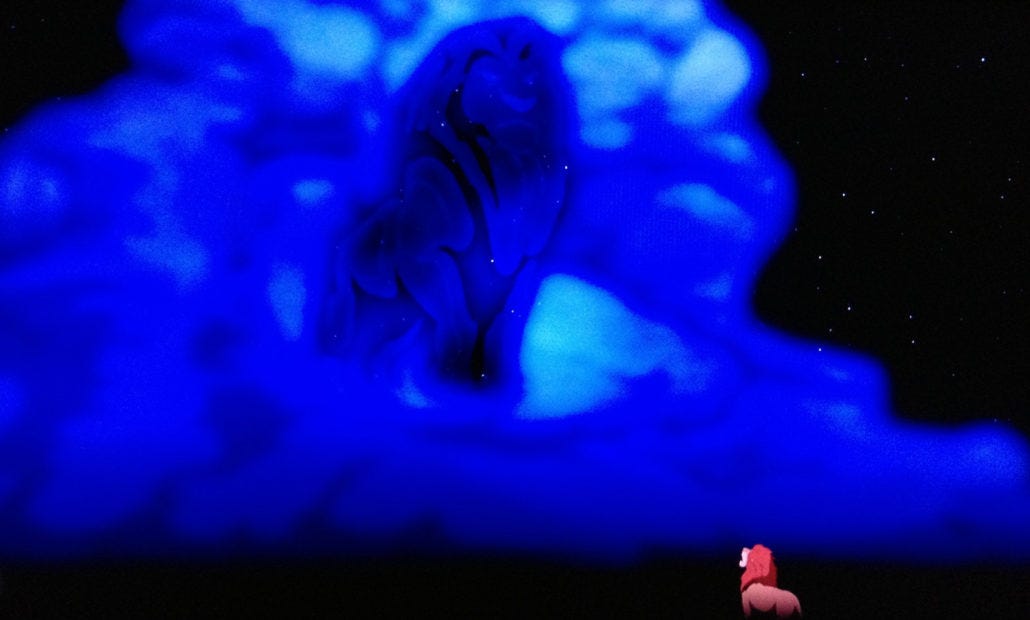Wrestling with the Ghost of your Father
Or - how to be the Lion King, the Top Gun, or the rightful ruler of Denmark.

The animated classic, The Lion King, the Reagan-era air force blockbuster, Top Gun, and the essential Shakespearean tragedy, Hamlet, are all about the same thing: how do you make atonement for the absence of your father?
It's a strange theme. Yet it is an idea so ubiquitous - fro…
Keep reading with a 7-day free trial
Subscribe to Chris Waldburger to keep reading this post and get 7 days of free access to the full post archives.


